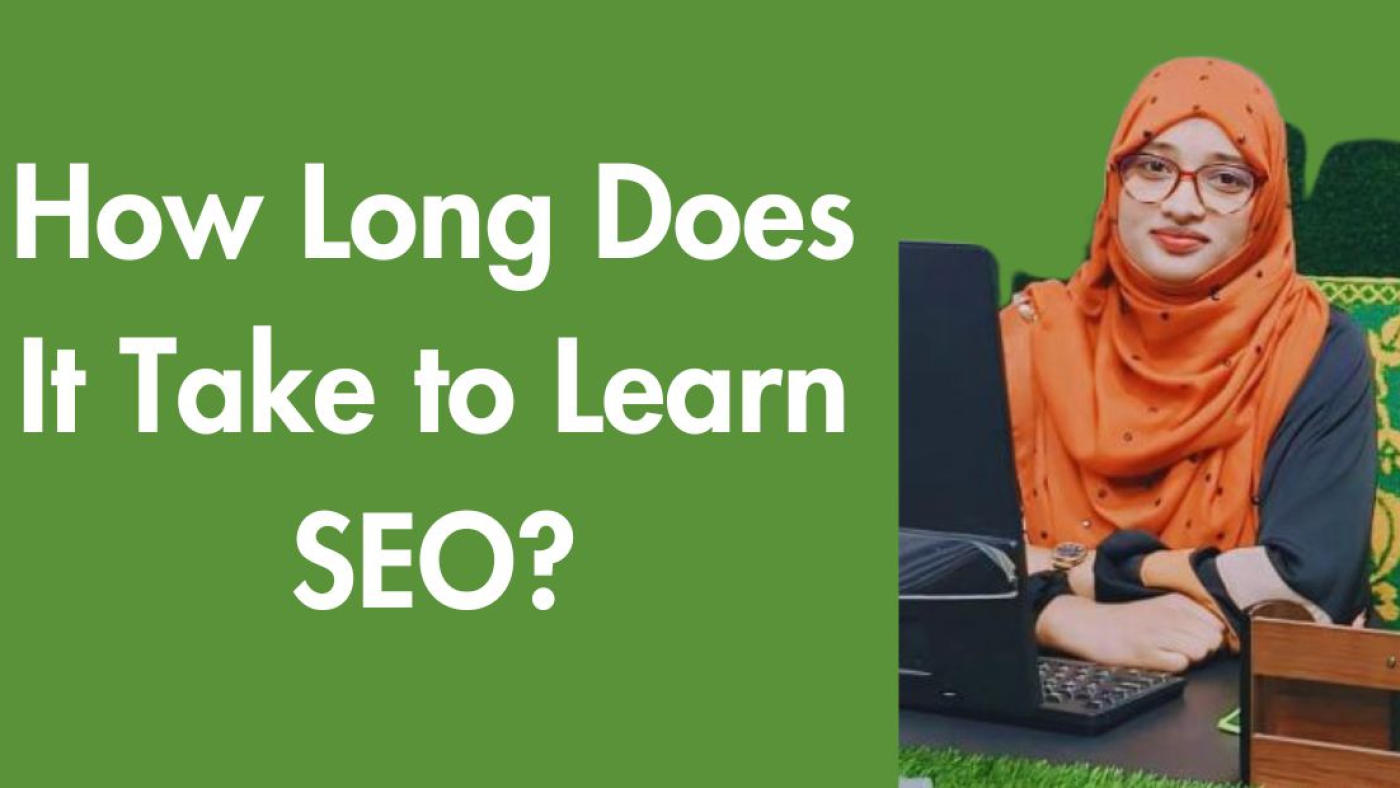Learning SEO (Search Engine Optimization) is a journey that varies from person to person. While some may grasp the fundamentals in a few weeks, mastering advanced techniques can take months or even years.
In this comprehensive guide, we’ll break down the SEO learning process, explain the factors influencing your learning speed, and provide insights to help you become proficient in this ever-evolving field.
Table of Contents:
- What is SEO?
- Why Learn SEO?
- Factors That Influence the Time to Learn SEO
- Breaking Down the SEO Learning Process
- SEO Fundamentals
- On-Page SEO
- Off-Page SEO
- Technical SEO
- SEO Tools and Software
- SEO Strategies and Campaigns
- How Long Does It Take to Learn SEO?
- SEO Basics: 1-3 Months
- Intermediate SEO: 3-6 Months
- Advanced SEO: 6-12 Months
- Mastery: 1-2 Years
- Tips for Accelerating Your SEO Learning Journey
- Should You Take an SEO Course or Learn SEO on Your Own?
- Final Thoughts: Is Learning SEO Worth It?
What is SEO?
SEO (Search Engine Optimization) is optimizing websites to rank higher on search engine results pages (SERPs). It involves various techniques to increase organic traffic and improve the visibility of a website, ultimately enhancing its chances of attracting relevant users.
SEO is an integral part of digital marketing and can be categorized into three main types:
- On-Page SEO (Optimizing individual web pages)
- Off-Page SEO (Link building and other external factors)
- Technical SEO (Optimizing the backend of a website)
Why Learn SEO?
SEO has become an essential skill in the digital age. Whether you’re a business owner, marketer, content creator, or web developer, knowing how to optimize content for search engines can boost online visibility, increase traffic, and lead to business growth.
Here are some key reasons why learning SEO is beneficial:
- Cost-effective marketing: SEO helps you generate organic traffic, reducing dependency on paid ads.
- Job opportunities: There’s a high demand for SEO professionals in various industries.
- Business growth: Mastering SEO can directly impact your business’s online presence and profitability.
Factors That Influence the Time to Learn SEO
The time it takes to learn SEO depends on several factors:
- Your Prior Knowledge: If you already understand basic digital marketing or web development concepts, you’ll pick up SEO faster.
- Consistency: The more consistently you study and apply SEO techniques, the faster you learn.
- Learning Method: Self-study, online courses, or learning through practical projects all impact your learning speed.
- SEO Complexity: SEO is a vast and ever-changing field. Keeping up with algorithm updates, new tools, and best practices can influence how long it takes to feel confident.
- Niche and Focus: Learning SEO for a specific niche like local SEO or eCommerce SEO can shorten the learning curve compared to mastering SEO for multiple niches.
Breaking Down the SEO Learning Process
- SEO Fundamentals
Before diving into the intricacies of SEO, you must first understand its core principles:
- Keyword Research: Identifying search terms your target audience uses to find relevant content.
- Search Engine Algorithms: How search engines like Google rank content based on relevance, authority, and user satisfaction.
- SERPs: The layout of search engine result pages and how features like snippets, ads, and organic results are presented.
- On-Page SEO
On-page SEO focuses on optimizing individual pages to rank higher. This includes:
- Title Tags and Meta Descriptions: Writing compelling titles and descriptions to improve click-through rates.
- Content Optimization: Using keywords naturally, creating high-quality content, and improving readability.
- URL Structure: Making URLs descriptive, keyword-rich, and user-friendly.
- Internal Linking: Linking between relevant pages to enhance user navigation and distribute page authority.
- Off-Page SEO
Off-page SEO revolves around building your site’s authority through external factors:
- Backlink Building: Acquiring high-quality links from authoritative websites.
- Social Signals: Using social media platforms to drive traffic and generate backlinks.
- Brand Mentions: Getting recognized across the web to build trust and authority.
- Technical SEO
Technical SEO ensures your site is easily crawlable and indexable by search engines. Key technical SEO elements include:
- Site Speed: Ensuring your website loads quickly.
- Mobile-Friendliness: Optimizing your site for mobile devices, as mobile-first indexing is a priority.
- XML Sitemaps: Helping search engines crawl and index your website.
- Structured Data: Using schema markup to enhance search results with rich snippets.
- SEO Tools and Software
There are various tools available that help automate and streamline the SEO process:
- Google Analytics: This is used to track site traffic and user behavior.
- Google Search Console: to monitor website performance and detect issues.
- SEO Tools: Tools like Ahrefs, SEMrush, and Moz are essential for keyword research, backlink analysis, and tracking rankings.
- SEO Strategies and Campaigns
Once you’ve mastered the basics, you can start building SEO campaigns by:
- Setting Goals: Whether you want to increase organic traffic, generate leads, or improve rankings, having clear goals helps guide your SEO strategy.
- Tracking Progress: Using tools to measure performance and adjust strategies based on real-time data.
How Long Does It Take to Learn SEO?
- SEO Basics: 1-3 Months
You can learn SEO fundamentals like keyword research, on-page optimization, and SERP analysis in 1-3 months. Dedicating a few hours a week to learning basic SEO concepts and applying them to a personal blog or website can accelerate your understanding.
- Intermediate SEO: 3-6 Months
Once you’ve grasped the basics, intermediate SEO involves deeper keyword research, mastering on-page SEO, and learning about technical aspects like site architecture and backlinking strategies. It generally takes 3-6 months of consistent effort to become proficient at intermediate SEO tasks.
- Advanced SEO: 6-12 Months
Advanced SEO requires mastering all aspects of on-page, off-page, and technical SEO. At this stage, you’ll be comfortable working on complex SEO campaigns, using advanced tools, and interpreting large-scale data to make strategic decisions.
- Mastery: 1-2 Years
Becoming a true SEO expert, capable of managing large-scale campaigns and staying on top of SEO trends, can take years of practice and continuous learning. By this stage, you should have a solid understanding of Google algorithm updates, the ability to conduct advanced competitor analysis, and the skill to design long-term SEO strategies.
Tips for Accelerating Your SEO Learning Journey
- Practice on a Real Website: Create your blog or work on SEO for a friend’s business to apply your learning.
- Follow SEO Blogs: Keep up-to-date with sites like Moz, Ahrefs, and Search Engine Journal for the latest SEO news.
- Join SEO Communities: Engage in forums and groups like Reddit’s SEO community or SEO Slack channels to ask questions and exchange tips.
- Use SEO Tools: Learn how to use Google Analytics, Google Search Console, Ahrefs, and SEMrush to monitor your SEO efforts.
- Learn from Case Studies: Analyze successful SEO case studies to understand what worked for others and why.
Should You Take an SEO Course or Learn SEO on Your Own?
While learning SEO through blogs, YouTube videos, and free resources can work, a structured SEO course can significantly shorten your learning curve. Courses often provide comprehensive training, mentorship, and real-life projects that give you a more practical understanding of SEO.
Final Thoughts: Is Learning SEO Worth It?
Absolutely! SEO is a valuable skill that offers endless opportunities for career growth, personal development, and business success. Whether you want to optimize your website, improve your marketing skills, or pursue a career in digital marketing, learning SEO is a rewarding investment of time.


Add a Comment